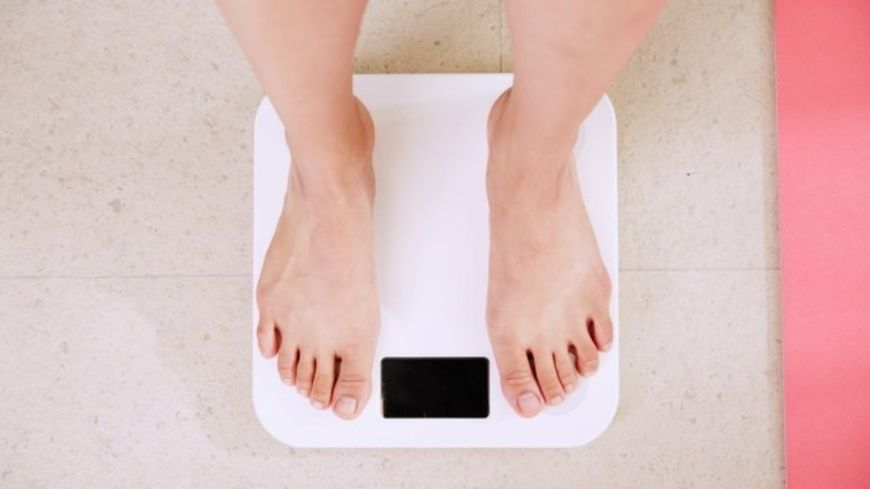How Clearing Clutter Can Help You Lose Weight, If That’s Something You’d Like to Do.
I've thought a lot about happiness and good habits. In my books The Happiness Project, Happier at Home, and Better Than Before, I explore what actions we might take to make ourselves happier—and how we can shape our habits to help us actually do those actions.
One habit that many people would like to follow? They'd like to eat more healthfully. People have many reasons to want to do this—to manage their blood sugar, to avoid food sensitivities, to cultivate their cooking skills, and for many people, to lose weight. (You may argue that people should eat healthfully for good health, and not frame this issue about "weight." That's true for many people. I'm not saying a person should do this—however, I talk to a lot of people about the habits they want to form and why, and many people do indeed report that they want to lose weight.)
Another habit that people would like to adopt? They'd like to maintain outer order more consistently. As I write about in Outer Order, Inner Calm, for most people, to a surprising degree, outer order contributes to a feeling of inner calm, inner energy, a sense of possibility.
And, I've noticed, these two habits often go together. Not necessarily for rational reasons, but in practice, I've observed (in other people and in myself), when we get our stuff under control, we feel in more control of ourselves, our actions, and our bodies.
As odd as it sounds, cleaning out your coat closet can make it easier to avoid the vending machine at work. Good habits build on each other. Outer order builds a feeling of inner self-command.
How can you harness this connection between outer order, eating healthfully, and losing weight? Consider...
Close the kitchen.
One common eating challenge for many people is nightly snacking. Dinner is over, but around 9:00 p.m. we wander through the kitchen, eating a handful of this or that. Or at 11:00 p.m., we find ourselves spooning ice cream out of the container, or peanut butter out of the jar (my husband's favorite treat).
To help end this, close the kitchen. Put everything away properly, with no open bags on the counter or half-covered dishes in the fridge; close the drawers and cabinets; wipe the counters; turn off the lights. If your kitchen has a door, close the door.
By creating an orderly, closed kitchen, you help signal yourself, "Eating time is over for the day." It feels odd to go back in there, and it discourages you from just "looking around." Bonus: brush your teeth.
Create outer order to harness the power of the Strategy of Inconvenience.
If a bag of potato chips is sitting open on the counter, it's a lot easier to reach in and grab just a few—and then keep going. If the bag of chips has a clip to keep the bag tightly closed and is sitting behind a cabinet door on a high shelf, it's much easier to resist. Research shows that to a hilarious degree, we're very influenced by the slightest bit of inconvenience or convenience. Along the same lines...
Use outer order to put things out of view.
When we see something, we think about it. When we don't see it, it's easier to forget that it's even there. So if you've baked cookies for your kids to take to school, box them up and put the box out of sight right away. If you leave the box out on the counter, you're more likely to keep reaching in. If you're worried that your child will forget to take the cookies if they aren't right by the door, put the box in a plastic bag and knot the bag shut, so you can't see them, and you'd have to rip open the plastic bag to get to the box. Then put the bag with the cookies by the door.
Do not expect that you'll be inspired to eat more healthfully by keeping clothes that no longer fit.
Very often, when people go through their closets, they find clothes that no longer fit. These items haven't been worn in years, but people hang on to them, to signal to themselves, "One day I'll be back to that size, and then I'll wear these things again."
Giving these clothes away seems like an admission that this change will never happen.
In my observation, the presence of these clothes doesn't help people eat better. If you want to eat better, work on that! My book Better Than Before is crammed with ideas to help you change your eating habits. But the guilt and anxiety—not to mention the crowded closet—created by these unwearable items doesn't help. Their presence acts as a discouraging drain, not a helpful spur.
When I'm helping a friend to go through a closet, and we run into this issue, here's what I say—and it really works.
I say, "Imagine the day when those clothes fit again. Do you think you'll feel like wearing these jeans that have sitting on the shelf for years, unworn? Or do you think you'll want to buy some new jeans?"
This is a hopeful prospect. And it's true! This thought often allows people to give away those clothes.
Clear clutter to help make you feel lighter.
It's interesting: over and over, when people get rid of things they don't need, don't use, or don't love, and create outer order, they say, "I feel as if I've lost ten pounds." That's the simile that comes up over and over again. Outer order creates a feeling of lightness, of greater ease and freedom—people literally feel like a weight has lifted off their bodies. So if you're feeling weighed down or burdened, clearing clutter can be a way to create a feeling of lift and energy in your mind—one that will actually energize your body. And that feeling of energy, in turn, will make it easier to stick to good habits. (That's the Strategy of Foundation.)
How about you? Have you experienced a connection between outer order and healthy eating?
This article originally appeared here.

.jpg)



